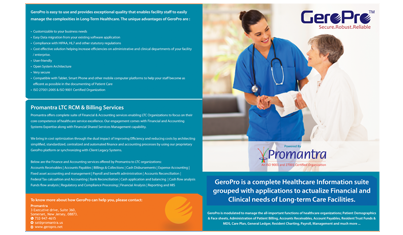How Regulatory Compliance Impacts SNF Finances

Regulatory compliance is a critical factor in the financial success of Skilled Nursing Facilities (SNFs). Facilities must adhere to strict Medicare, Medicaid, and state regulations, which dictate everything from staffing ratios to reimbursement requirements. While compliance ensures high-quality patient care and legal protection, failing to meet these standards can result in financial penalties, reimbursement denials, and operational inefficiencies. Understanding how regulatory requirements impact SNF finances is essential for administrators and financial officers. This blog explores the financial implications of compliance, the costs of non-compliance, and strategies to ensure compliance while maintaining profitability.
1. Understanding Key Regulatory Requirements for SNFs
1.1 Medicare & Medicaid Compliance
Since a significant portion of SNF revenue comes from Medicare and Medicaid reimbursements, facilities must meet strict guidelines under:
- Medicare Conditions of Participation (CoPs): Includes minimum staffing levels, patient care standards, and billing documentation.
- Medicaid Regulations: Varies by state but require accurate financial reporting and compliance with patient care metrics.
1.2 PDPM (Patient-Driven Payment Model) Compliance
The Patient-Driven Payment Model (PDPM) determines Medicare reimbursement based on clinical complexity rather than therapy minutes. Proper coding, documentation, and patient assessments are required to receive full reimbursement.
1.3 State & Federal Regulatory Oversight
SNFs must also comply with:
- OSHA (Occupational Safety and Health Administration): Workplace safety regulations to protect staff.
- HIPAA (Health Insurance Portability and Accountability Act): Protects patient health information, requiring SNFs to invest in secure data management.
- Infection Control Standards: Especially post-pandemic, SNFs must follow CDC guidelines on infection prevention.
2. The Financial Costs of Non-Compliance
Failing to comply with regulations can result in severe financial consequences for SNFs, including penalties, lost reimbursements, and legal action.
2.1 Financial Penalties & Fines
Regulatory violations often result in hefty fines, significantly impacting an SNF’s bottom line. For example, a Texas-based SNF was fined $200,000 by CMS for inadequate infection control measures, leading to a 30% drop in Medicare reimbursements over six months.
2.2 Reimbursement Denials & Revenue Loss
If documentation does not meet Medicare or Medicaid requirements, claims can be denied, leading to:
- Delayed payments
- Revenue cycle disruptions
- Increased administrative costs for appeals
According to a CMS report, improper Medicare payments cost SNFs over $4 billion annually, primarily due to documentation errors.
2.3 Lawsuits & Legal Liabilities
Non-compliance with resident care standards or HIPAA can lead to lawsuits, settlement costs, and reputational damage. For instance, Florida SNF paid $1.75 million in legal settlements after a lawsuit claimed inadequate staffing led to patient neglect.
3. How Compliance Improves Financial Health
3.1 Higher Reimbursement Rates
SNFs that consistently meet compliance standards qualify for full Medicare and Medicaid reimbursements, ensuring steady cash flow. Proper PDPM assessments allow SNFs to receive the correct reimbursement for patient care complexity, while accurate documentation minimizes claim denials, reducing revenue loss.
3.2 Lower Liability Insurance Costs
Facilities with strong compliance records benefit from lower liability insurance premiums, as they are seen as lower risk by insurers. SNFs with repeated regulatory violations pay 15-25% higher insurance premiums than compliant facilities.
3.3 Stronger Reputation & Higher Occupancy Rates
Better CMS Star Ratings attract more Medicare and private-pay residents. Compliance-driven care leads to higher patient satisfaction, increasing referrals and occupancy. For example, a Chicago SNF improved its CMS rating from 2 stars to 4 stars by enhancing compliance efforts, leading to a 20% rise in private-pay admissions.
4. How LTCPro Makes Regulatory Compliance Seamless
4.1 Automated Compliance Monitoring
LTCPro’s real-time compliance tracking helps SNFs stay ahead of Medicare, Medicaid, PDPM, and HIPAA regulations. Facilities receive instant alerts for missing documentation, billing errors, and non-compliant patient assessments, along with custom dashboards for real-time compliance status monitoring. For instance, 200-bed SNF in California reduced compliance-related deficiencies by 40% after implementing LTCPro’s tracking system.
4.2 AI-Driven Billing & PDPM Compliance
LTCPro optimizes claim submissions to prevent revenue loss due to compliance-related denials. Automated PDPM coding validation ensures accurate reimbursement, while claim scrubbing tools detect errors before submission. Seamless EHR integration ensures documentation accuracy. Florida SNF cut claim rejections by 35% and increased annual revenue by $600,000 using LTCPro’s automated billing solutions.
4.3 Audit Readiness & Risk Management
LTCPro simplifies audit preparation by maintaining organized, digital compliance records. Facilities can generate one-click audit reports with complete patient and billing documentation, ensuring HIPAA-compliant data storage for secure record-keeping. Automated infection control tracking meets CMS and OSHA standards. A Chicago SNF passed a surprise CMS audit with zero deficiencies after leveraging LTCPro’s automated documentation system.
4.4 Staff Credentialing & Training Compliance
LTCPro ensures SNF staff meet CMS-mandated training and licensing requirements. Automated credential tracking prevents staff license expirations, while HIPAA, OSHA, and Medicare training modules ensure compliance. Performance analytics identify compliance risks in staffing. A Texas SNF reduced staff compliance violations by 50% after implementing LTCPro’s training management system.
5. The Future of Regulatory Compliance in SNFs
5.1 AI & Predictive Compliance Monitoring
AI-driven analytics will help SNFs predict compliance risks before they result in penalties. Smart algorithms will automatically flag missing documentation, reducing manual audits.
5.2 Blockchain for Secure Patient Data Management
HIPAA-compliant blockchain solutions will improve data security and audit transparency. Smart contracts will ensure real-time compliance reporting to regulators.
5.3 Telehealth & Remote Compliance Solutions
Virtual compliance audits will become more commonplace, reducing on-site inspection disruptions. Telehealth integration will help SNFs meet CMS telemedicine regulations for remote patient monitoring.Experts predict that by 2030, SNFs adopting AI-based compliance tools will reduce regulatory penalties by 50%.
Compliance as a Strategic Financial Tool
Regulatory compliance is not just a legal requirement; it is a financial strategy for SNFs. By investing in automated compliance tools like LTCPro, facilities can reduce financial risks, improve cash flow, and enhance patient outcomes.Want to simplify regulatory compliance and boost financial performance? Schedule a demo with LTCPro today!
A perfect fit for Skilled Nursing Facilities, Assisted Living Facilities, Home Health, Hospice and Other Day Care Centres.
Download BrochureRequest a demo


























